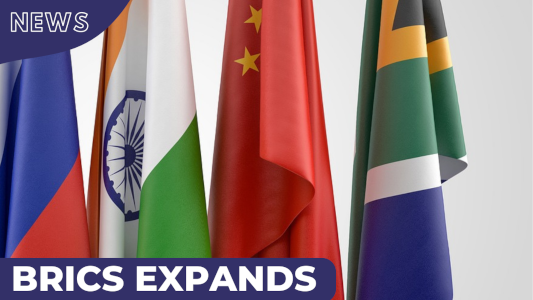
Is China's economy in decline?
May 9, 2023
Tweet
category: Business
China's economy has been one of the fastest-growing in the world over the past few decades. However, recent reports suggest the country's economic growth may be slowing down. There are several reasons why this might be happening.
China is a major exporter of goods and services, but global demand for Chinese exports has been decreasing in recent years suggesting a decreasing export demand for products made in China. The ongoing trade tensions between China and the United States possibly play a role in further reducing the export demand, thus leading to slower economic growth.
China's labour market
As China's economy has grown, so too have labor costs. This has made it more expensive for Chinese companies to produce goods and services, which has in turn led to a decrease in competitiveness.
According to the World Bank,
"Since China began to open up and reform its economy in 1978, GDP growth has averaged over 9 percent a year, and more than 800 million people have lifted themselves out of poverty. There have also been significant improvements in access to health, education, and other services over the same period." link to World Bank
With economic expansion and the benefits it provides to the country, come the demands of a good standard of living and as a result, increases in salaries. Has China now reached the point where it has lost the advantage of 'cheap' labour and must now compete on a level footing with the USA, Europe, etc?
Like many countries, China's population is rapidly aging, with the proportion of elderly citizens increasing each year. This has put pressure on the country's social welfare system while leading to a decrease in the size of the workforce.
Debt
China's debt levels have been rising rapidly in recent years, with total debt estimated to be approximately 300% of GDP. This has led to concerns about the country's ability to repay its debts, which could lead to a financial crisis and further economic slowdown.
Climate change

Climate change is a topic that is being addressed by all countries around the globe, China is facing significant environmental challenges, including air pollution and water scarcity. These challenges are putting pressure on the country's economy and could lead to slower economic growth if not addressed.
The road ahead
Despite these challenges, it's worth noting that China's economy is still growing at a faster rate than most developed countries. However, the country's economic growth is expected to slow down in the coming years. To address these challenges, the Chinese government has been implementing a range of policies designed to promote economic growth, including tax cuts, infrastructure investments, and trade agreements with other countries.
China's economy may be slowing down due to a range of factors, including decreasing export demand, rising labor costs, an aging population, high debt levels, and environmental challenges. While the country's economic growth is still strong compared to many other developed countries, it's important for policymakers to address these challenges and implement policies that promote sustainable economic growth in the long term.
Please note that this page may contain affiliate links. This means that if you make a purchase through one of these links, I may receive a small commission at no extra cost to you. Thank you for your support!








